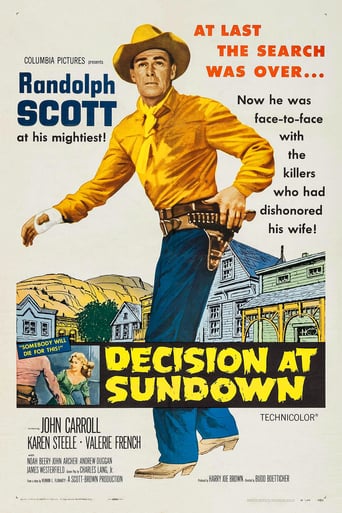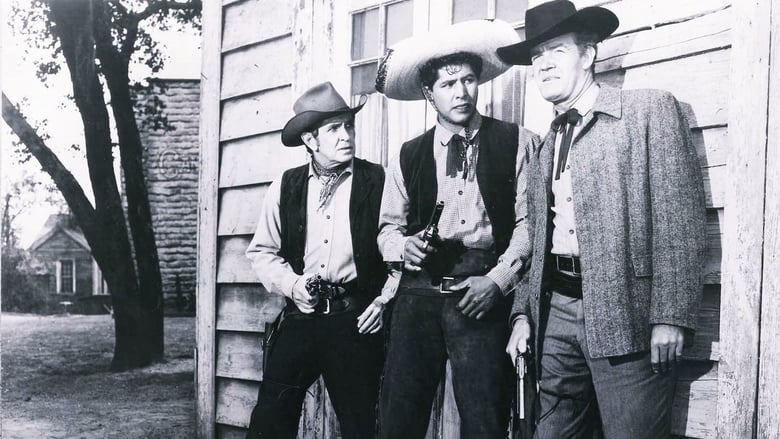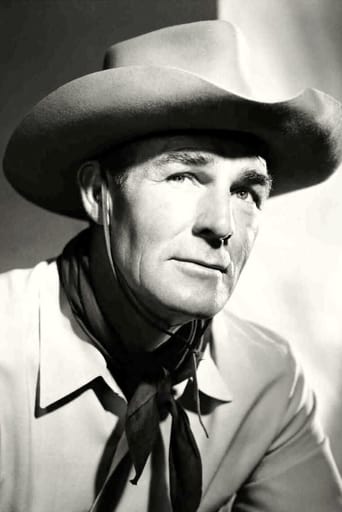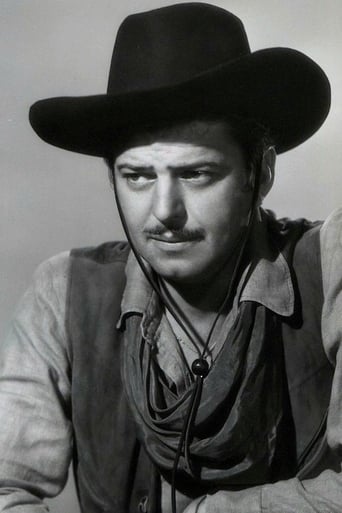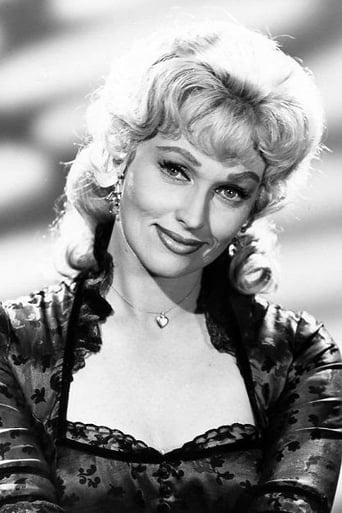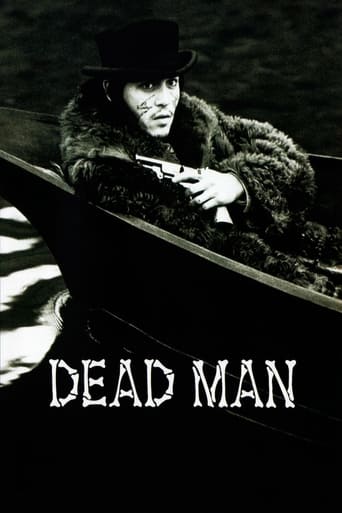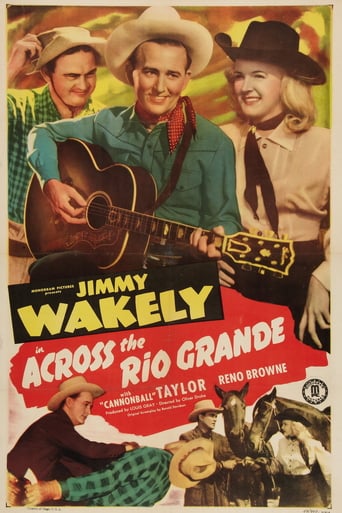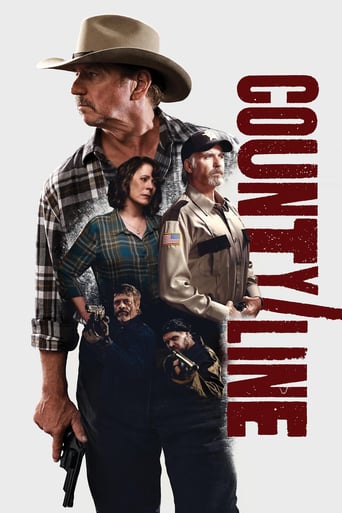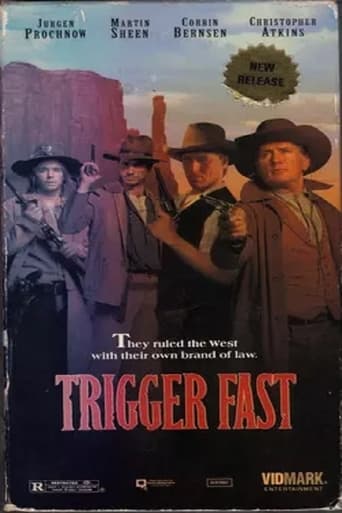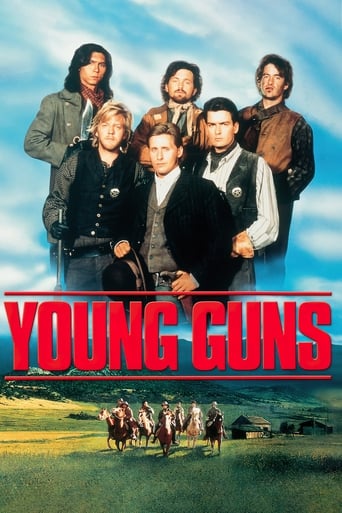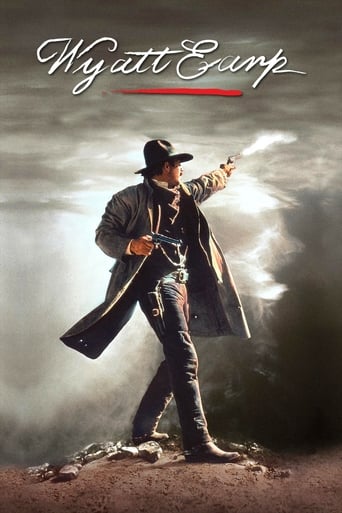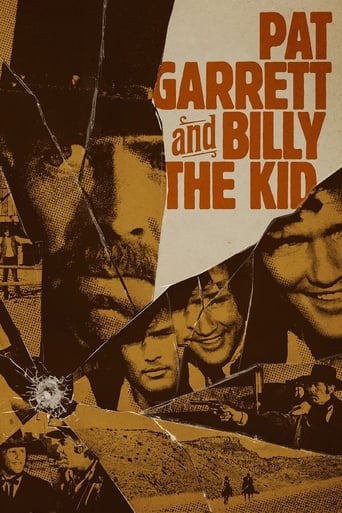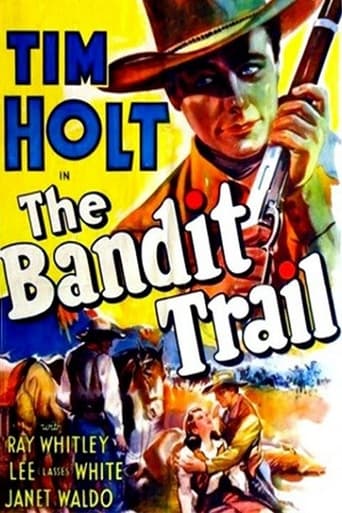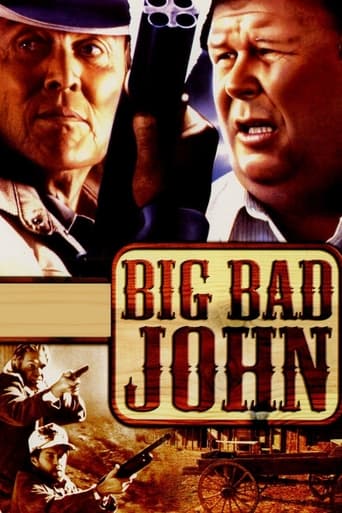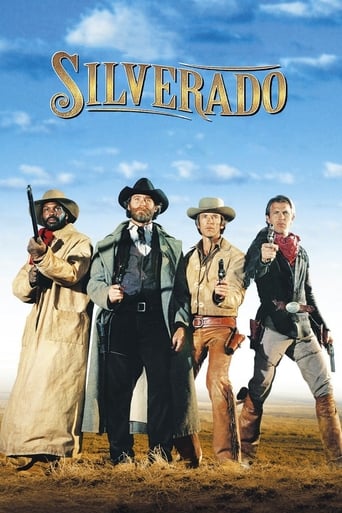Decision at Sundown (1957)
A man and his partner arrive at a small Western town to kill its most powerful man because the former blames him for his wife's death.
Watch Trailer
Cast


Similar titles
Reviews
Very best movie i ever watch
A Masterpiece!
There is, somehow, an interesting story here, as well as some good acting. There are also some good scenes
This film is so real. It treats its characters with so much care and sensitivity.
One of a series of color films starring Randolph Scott, directed by Bud Boetticher. Included the curvaceous Karen Steele, who costarred in several of these films, being Boetticher's lover during this period.Bart Allison(Randolph Scott) has been hunting Tate Kimbrough (John Carroll) for 3 years, with the goal of killing him, since he blames Tate for his wife's suicide. Is this a legitimate goal? No! Bart's wife chose to accept Tate as a lover while Bart was a soldier in the Civil War, and she chose to kill herself. According to Sam, Bart's friend, this was not the first affair she had while Bart was away. But Bart doesn't want to hear this point of view. He's obsessed with blaming Tate for his wife's demise. When Bart left town, having finished his punishment of Tate, the residents generally credited him for catalyzing the downfall of the grasping Tate, thus thought of him as a hero. But he was a hero only by default. His pursuit of Tate and disruption of his marriage ceremony instigated the locals to rise up against Tate, which they had previously been afraid to do. Tate's girlfriend Ruby(Valerie French), performed a more heroic act when she shot Tate in the arm, as he was pulling his gun out of his holster, in a street showdown with Bart, causing him to fall to the ground. Bart was unwilling to shoot him under this condition, or any condition where Tate was defenseless. Another aspect of the plot is the drama surrounding the question of whom Tate is going to marry. Ruby had been his closeted girlfriend for a couple years, and repeatedly asked him to marry her. But Tate opted for the more beautiful Lucy(Karen Steele), to become his 'trophy' wife. But, Bart broke up their marriage ceremony, saying "Ïf you marry this man, you'll be a widow by Sundown". Lucy chickened out, saying she now saw Tate as a town bully who was not to be respected.(Difficult to believe she didn't know this before!). In contrast, Ruby stuck by her man when he was down and, in the end, they are seen together in a carriage, riding out of town. Certain parts of the film don't make sense to me, especially the first segment, when Bart is riding in a stage, then suddenly demands that the stage stop, firing his gun in the air. This signals his friend Sam to come out of the woods with an extra horse. Then Bart allows the stage to ride off. See it at YouTube.
In my opinion this is the film that Scott should not have done. The script is bad. Scott lives a husband who was betrayed by his wife years ago and seeks revenge the man responsible for it. The film escapes the traditional western line where the hero always has some dignity. Scott's character is a disoriented. Into the church in a way completely meaningless and then hides in a warehouse, taking his friend to death. Their actions do not make sense, despite being shown in history as having changed the lives of everyone in the community. All characters are caricatured, it does not seem that may exist. "Decision at Sundown" does not have the same strength of other Boetticher films and finishes disconcertingly again with Scott disoriented and drunk. I'm sorry those who admire the film, but I consider him very weak. Disappointing.
In more recent years, the revisionist Western made heroes out of outlaws and men out for revenge. Think of Clint Eastwood's Will Munny in "Unforgiven". At the same time, Gene Hackman's Little Bill Daggett in the same picture was the epitome of the evil town boss, taking gleeful pleasure in dispatching anyone who threatened his supremacy. You can replace the town of Big Whiskey with the titled town of this picture, but the protagonists here don't quite build the kind of tension one expects on the way to a final showdown. Bart Allison's (Randolph Scott) motivation is built on the false premise that a villain stole his wife away from him, and refuses to acknowledge that she was in fact a 'loose' woman. The town-folk of Sundown are presented as intermediaries in this fable, who have trouble acknowledging that Tate Kimbrough (John Carroll) is the bad guy he's supposed to be, or at least as bad as Allison's preconceived notion insists on.Since I brought Eastwood's name into it, I might as well get another thought off my chest. I like Randolph Scott, but casting him as a sixty year old gunfighter doesn't quite work in the final analysis. Catch him hunched over the bar looking like hell after the film's high spot and you'll see what I mean. Though he did age better than John Wayne and kept himself in generally good shape. I'm trying to visualize him fifty pounds overweight wearing an eye-patch and it's not a pretty picture.I've read any number of reviews regarding Scott's collaboration with director Budd Boetticher, but I haven't experienced the magic yet. I'd rate the two I've seen so far, "Comanche Station" and "Ride the High Country" as somewhat better, primarily because Scott's character comes off as a more principled and heroic figure in those films. In this one, it's the villain who rides off into the sunset with the girl, leaving the conflicted gunman behind to tend to his wounds and trying to figure out where it all went wrong.
Bart Allison and Sam, his trusty companion, ride into Sundown looking for a guy named Tate Kimbrough. It appears that Kimbrough had a dalliance with Allison's wife some years earlier, an affair that led to the suicide of the erstwhile Mrs Allison. With revenge and hatred eating away at him, Allison will not rest until he gets his man, but his very being here in Sundown will be the catalyst for not only himself, but also every other resident of this dusky town.Randolph Scott {Bart Allison} and director Budd Boetticher made seven very interesting, and intelligent Westerns together, each man seemingly using each one as a muse of sorts. This particular entry on their wonderful resume's is a fine testament to their winning formula, because Decision At Sundown offers up something different outside of your standard Western fare. The plot structure is for sure very basic, the man out for revenge, and the town in the grip of less than honourable men, but here our main protagonist really isn't thinking with his head. He is driven by rage and an affair of the heart, he in fact doesn't care if he lives or dies, just as long as he gets his man!. Also of interest is the effect on the town of Sundown that Allison has, it certainly lent me to think about some so called supernatural Westerns that would surface later on down the line, whilst the ending here doesn't resort to any sort of cop out formula's, it's poignant and begs for a further train of thought.Scott is first rate as Allison, grey hair personifying the wisdom that he has lost due to his blind thirst for revenge, with a devilment glint evident in both of his eyes. Scott does an excellent line in rage and grief stricken acting, so no doubt in my mind that Randy Scott was a wonderful actor in this splendid of Western genres. Backing Scott up is Noah Beery Jr {Sam} and John Archer as Dr. John Storrow, but of the rest of the cast I personally couldn't lend too much praise for, with the main negative of note being that the villains of the piece barely get out of grumpy only territory, John Carroll {Kimbrough} and Andrew Duggan as crooked Sheriff Swede Hansen really should have gone for a more twirling moustache type villainy than the underplayed ones we actually get.But underplayed villains be damned, this is still a hugely enjoyable picture, and one that definitely holds up on a repeat viewing. 7/10

